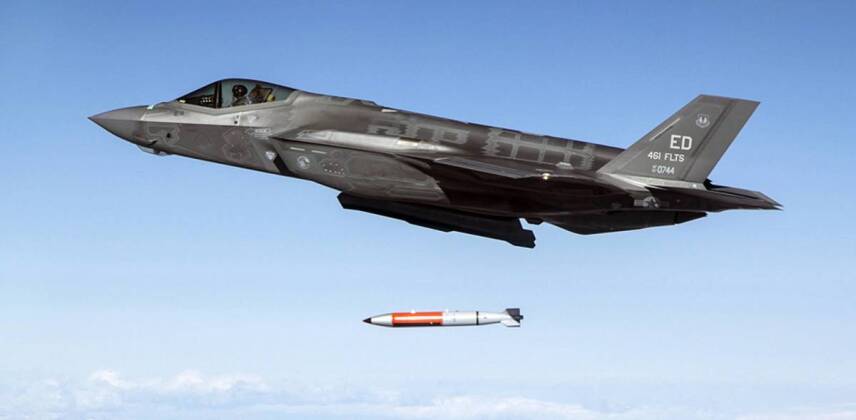News
Calls Grow in Europe For Continental Nuclear Arsenals Aimed at Russia
Amid growing concerns in Europe that the United States could reduce its military commitment to the continent, follow a blocking of further funding for the Ukrainian war effort since December and as a return of former president Donald Trump to the White House appears increasingly likely, calls have grown among European leaders to enhance overall EU nuclear weapons capabilities. The German ruling Social Democratic Party’s top candidate for the upcoming European Parliament election Katarina Barley on this basis claimed on February 13 that the European Union should have its own nuclear weapons capability. “In view of Donald Trump’s recent statements, we can no longer rely on” America’s nuclear umbrella, she stressed, adding that a “European bomb” could be an important step towards developing a joint EU Armed Forces – something widely proposed by leaders on the continent in the past, particularly French President Emmanuel Macron. Barley added that should the United States continue to refrain from financing the Ukrainian war effort Europe would have to take a much greater responsibility for doing so. Her statement follows a visit to Washington by German Chancellor Olaf Scholz, which was primarily aimed at persuading Capitol Hill to resume funding for the war effort. This was widely assessed to have fallen far short of success.

Europe already has by far the most nuclear-armed states of any continent in the world, with two of the world’s five nuclear weapons systems recognised by the Treaty on Non-Proliferation of Nuclear Weapons namely Britain and France. Belgium, Germany, Italy, the Netherlands, and Turkey are all also guaranteed access to American B61 tactical nuclear bombs deployed on their territories should war break out under a Nuclear Sharing Program, meaning seven European nuclear weapons states will be able to conduct nuclear strikes should conflict with Russia break out. Of these seven, all except France and Turkey will by the end of the decade deploy F-35 fifth generation stealth fighters well optimised to nuclear delivery missions. Germany notably placed its first orders for F-35s specifically because of their advanced nuclear delivery capabilities, which the domestically produced non-stealth Eurofigther aircraft notably lacked.

An eighth European state, Poland, announced on June 30, 2023 that it was seeking to enter into a Nuclear Sharing Program with the United States, and is set to begin receiving F-35s in 2026. Polish President Andrzej Duda previously raised the issue in October 2022, but was rebuffed by the U.S. State Department. Polish Army General Jaroslaw Kraszewski more recently stated that obtaining nuclear weapons was an objective for Warsaw “in the coming years,” stating that this was part of a process of “Trump-proofing the security of Eastern Europe.” Nuclear sharing agreements have been viewed highly controversially and equated by non-proliferation experts with effectively creating new nuclear weapons states in all but name.
In November a report from New York based media outlet Newsweek highlighted that new variants of the B61 tactical nuclear bomb would allow an F-35 to kill over 310,000 inhabitants of the Russian capital Moscow in a single sortie, and that should bomb be dropped on central St Petersburg, which is more densely populated, the death toll would rise to over 360,000. Russia’s ability to defend its airspace against attacks from fifth generation fighters remains a hotly contested issue, with the expansion of NATO into Eastern Europe having expanded the alliance’s basing options considerably and removed a considerable buffer between its aviation assets and major Russian population centres. With NATO’s border with Russia having doubled in length in April 2023 with the accession of Finland to the alliance, the U.S. Air Force was reported the following month to be seeing significantly expanded basing opportunities for its F-35s in the country. The possibility of Finland eventually gaining access to B61 nuclear warheads for its F-35s has been widely speculated.












